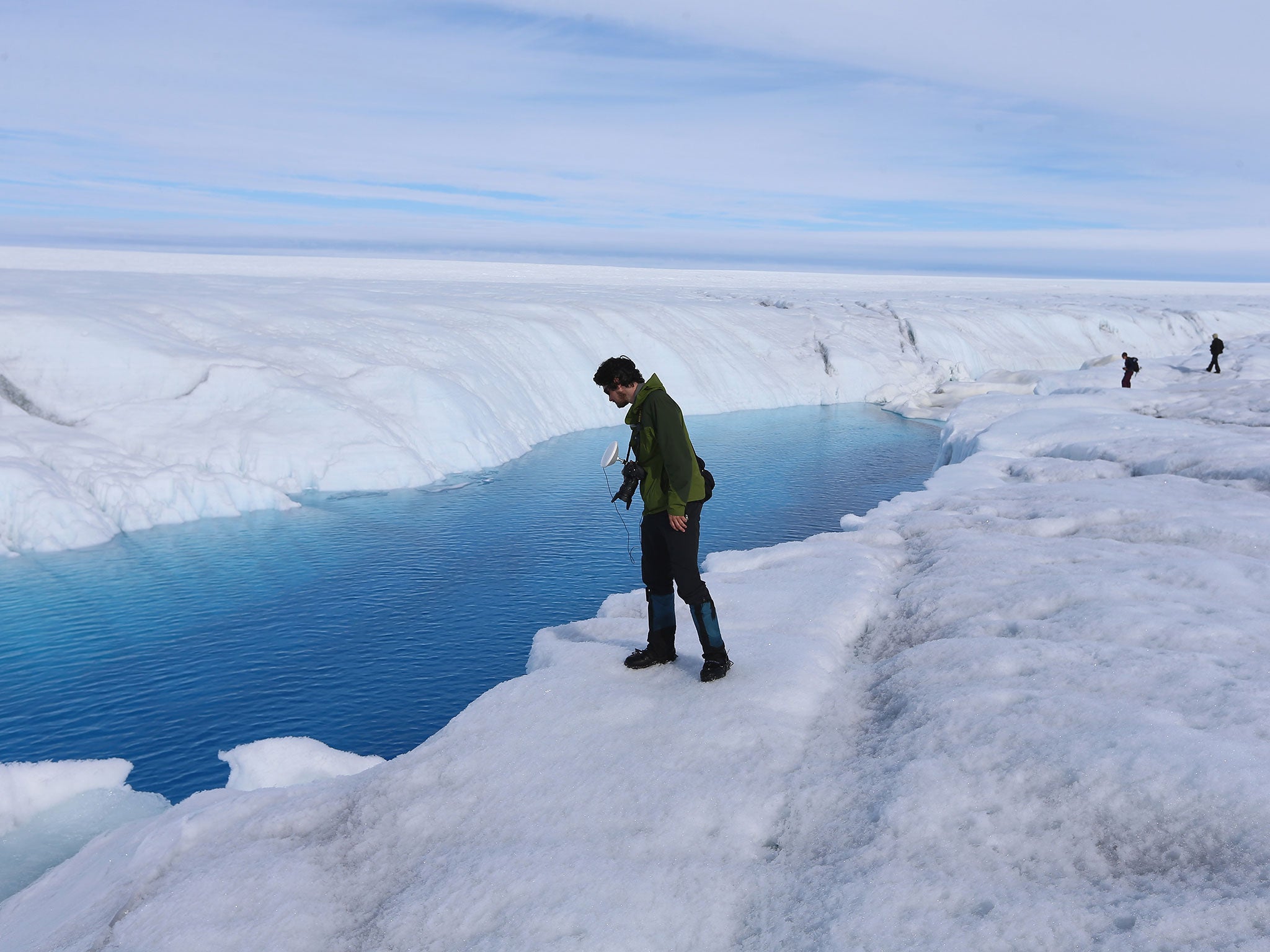End fossil fuels by 2100 - the dramatic 'final warning' over climate change
Key UN report warns that time is running out

Your support helps us to tell the story
From reproductive rights to climate change to Big Tech, The Independent is on the ground when the story is developing. Whether it's investigating the financials of Elon Musk's pro-Trump PAC or producing our latest documentary, 'The A Word', which shines a light on the American women fighting for reproductive rights, we know how important it is to parse out the facts from the messaging.
At such a critical moment in US history, we need reporters on the ground. Your donation allows us to keep sending journalists to speak to both sides of the story.
The Independent is trusted by Americans across the entire political spectrum. And unlike many other quality news outlets, we choose not to lock Americans out of our reporting and analysis with paywalls. We believe quality journalism should be available to everyone, paid for by those who can afford it.
Your support makes all the difference.Time is running out if the world wants to avoid potentially catastrophic climate change, according to the most definitive report to date by the UN body charged with formulating expert advice for governments around the globe.
In what amounts to a “final warning” about the dangers of not doing enough to curb emissions of greenhouse gases, the Intergovernmental Panel on Climate Change (IPCC) said that it is technically and economically possible to still keep within the target of no more than a 2C increase in global average temperatures.
However, the panel warns in its Synthesis Report published yesterday that fossil fuels will have to be significantly scaled back in the coming decades, and eliminated entirely by 2100, in order to keep within what is widely considered to be the “safe” limit for global warming.
“We have little time before the window of opportunity to stay within the 2C of warming closes,” said Rajendra Pachauri, the chairman of the IPCC, who launched the report in Copenhagen. “To keep a good chance of staying below the 2C, and at manageable costs, our emissions should drop by 40 to 70 per cent globally between 2010 and 2050, and falling to zero or below by 2100,” Dr Pachauri said.
“We have the opportunity, and the choice is in our hands,” he added, referring to the need for a global climate deal to limit fossil fuel emissions in time for an international climate meeting of governmental policymakers next December in Paris.
The Synthesis Report, which is seen as the final “capstone” of the previous three IPCC reports, restates the scientific, economic and social case for a new climate deal to turn around the continuing increase in fossil fuel emissions over the past decades – carbon dioxide emissions alone last year reached a record 36 billion tons.
The report states that the human influence on the Earth’s climate is clear, that human emissions of greenhouses gases are the highest in history, and that recent changes to the climate have already had an impact on human and natural systems.
“Warming of the climate system is unequivocal, and since the 1950s, many of the observed changes are unprecedented over decades to millennia. The atmosphere and ocean have warmed, the amounts of snow and ice have diminished, and sea level has risen,” the report says.
The IPCC warns governments that it is not enough to cut fossil fuel emissions, it will also be necessary to adapt to climate change. But the longer they take to come to a binding deal on curbing emissions through mitigation, the greater the eventual costs of adaptation, the IPCC said.
“We need both adaptation and mitigation. One or another is not the solution to these problems,” Dr Pachauri said. “We have the means to limit climate change. The solutions are many and allow for continued economic and human development. All we need is the will to change.”
Sir Mark Walport, the Government’s chief scientific adviser, said that the IPCC has now made it clear that climate change is happening and that it poses widespread and serious risks.
“We can still avoid the most serious impacts. We need to transform the way we power our lives. This will be very challenging, but the challenges for humanity if we do not are likely to be far greater,” Sir Mark said. “The longer global emissions are allowed to continue to increase year on year the more difficult, and expensive, the transition to a low carbon future will become.”
IPCC report - the key findings
* Many of the observed changes in climate are unprecedented, over either recent decades or millennia.
* The atmosphere and oceans have warmed, snow and ice has diminished and sea levels have risen.
* Human emissions of greenhouse cases are the highest in history and concentrations of carbon dioxide in the atmosphere are the highest in at least 800,000 years.
* The acidity of the oceans has increased by 26 per cent since the beginning of the industrial era due to increases in carbon dioxide.
* It is “extremely likely” that human emissions of greenhouse gases from fossil fuels and other sources are the dominant causes of the observed warming.
Join our commenting forum
Join thought-provoking conversations, follow other Independent readers and see their replies
Comments